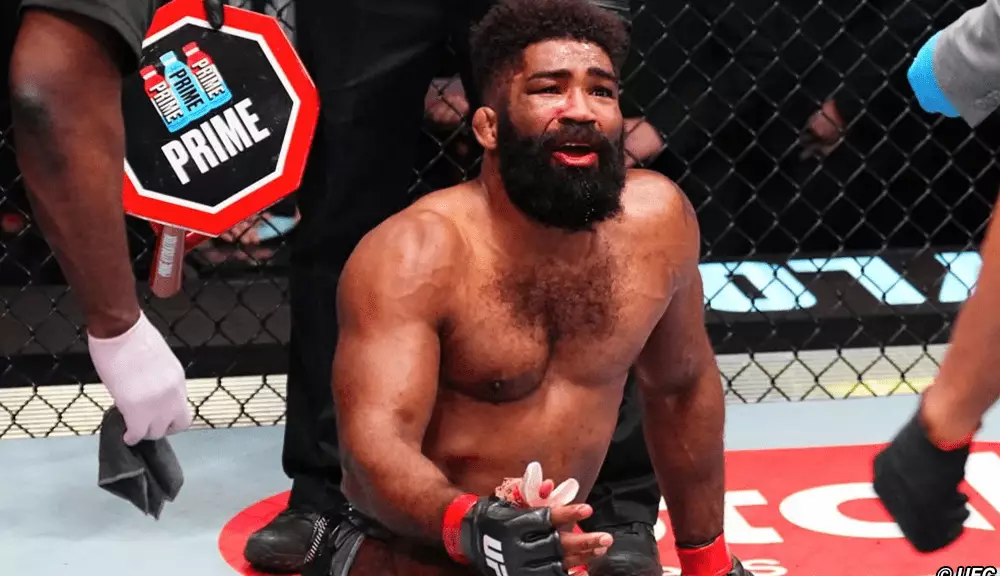The recent UFC Fight Night 249 event has brought to the forefront the contentious debates surrounding referee decisions in mixed martial arts. Notably, Chris Curtis’s loss to Roman Kopylov has ignited considerable discussion among fans and analysts alike. As the fight reached its climax, Kopylov landed a decisive head kick that sent Curtis to the canvas with only seconds remaining on the clock. Controversially, referee Mark Smith halted the fight at that moment, leading to an uproar from Curtis, who felt the stoppage was premature. This incident serves as a representative case of the intense scrutiny referees face and the high stakes involved in their decisions.
John McCarthy, a seasoned referee turned commentator, voiced his agreement with Curtis’s frustrations on his podcast. He outlined that, although Kopylov was gaining momentum in the final round, the timing of Smith’s intervention raised questions. According to McCarthy, the referee’s role is to protect fighters who are no longer capable of defending themselves. In this case, since Kopylov was not aggressively pursuing his opponent but instead walking away after the strike, McCarthy argues there was no immediate threat to Curtis. The implications of a stoppage made under such circumstances are significant; it can dictate not only the outcome of a fight but also the careers of the fighters involved.
The complexities of knockout situations in MMA are often clouded by the rush of adrenaline and the finite moments that define victory or defeat. In this bout, Curtis’s descent was admittedly severe, but the context matters. He remained aware and appeared to be focusing on Kopylov as the latter stepped back. This perspective changes the narrative; rather than being a passive participant no longer in control, Curtis seemed engaged in the fight up until the referee’s intervention. Referees must assess not just the immediate physical state of a fighter but also their mental engagement and response capabilities.
The conversation surrounding Curtis and Kopylov’s fight transcends mere dissatisfaction; it brings into play vital discussions regarding how referees are trained and the criteria they use for stopping fights. Each stoppage carries weight, affecting not just individual outcomes, but also influencing the broader trust between fighters, fans, and officials. As Kopylov defended the referee’s decision, contrasting reactions highlight how different stakeholders in the sport interpret safety and competitive integrity. This dichotomy showcases the need for clearer guidelines and perhaps further training for referees to navigate such precarious situations.
Ultimately, the fallout from this incident may serve as a catalyst for change in the way referees approach their roles in high-stakes matches. The balance between fighter safety and allowing combat to play out is delicate, and the UFC, along with regulatory bodies, may need to reassess protocols to minimize future controversies. As MMA continues to evolve, it is imperative to refine how referees operate, ensuring they are fully equipped to make split-second decisions that could alter careers and records. Chris Curtis’s plight, while personally disheartening, underscores these critical conversations, urging the sport toward a more nuanced understanding of safety and competition.

